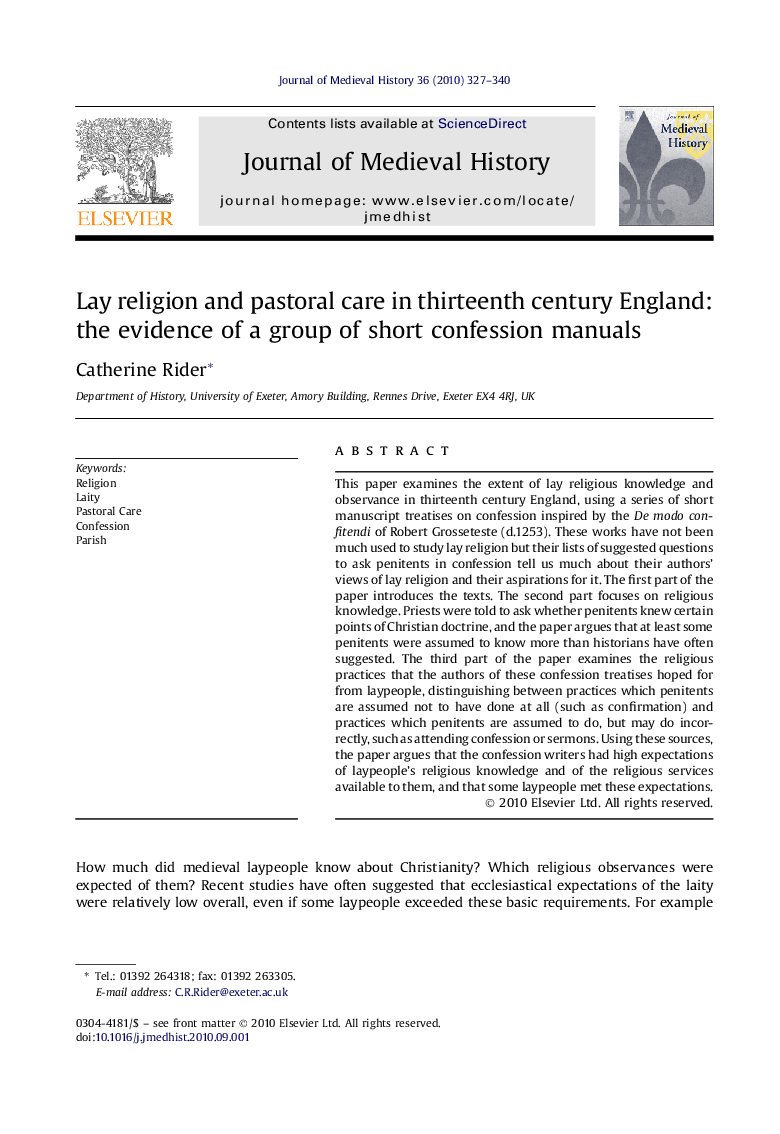| Article ID | Journal | Published Year | Pages | File Type |
|---|---|---|---|---|
| 1160134 | Journal of Medieval History | 2010 | 14 Pages |
This paper examines the extent of lay religious knowledge and observance in thirteenth century England, using a series of short manuscript treatises on confession inspired by the De modo confitendi of Robert Grosseteste (d.1253). These works have not been much used to study lay religion but their lists of suggested questions to ask penitents in confession tell us much about their authors’ views of lay religion and their aspirations for it. The first part of the paper introduces the texts. The second part focuses on religious knowledge. Priests were told to ask whether penitents knew certain points of Christian doctrine, and the paper argues that at least some penitents were assumed to know more than historians have often suggested. The third part of the paper examines the religious practices that the authors of these confession treatises hoped for from laypeople, distinguishing between practices which penitents are assumed not to have done at all (such as confirmation) and practices which penitents are assumed to do, but may do incorrectly, such as attending confession or sermons. Using these sources, the paper argues that the confession writers had high expectations of laypeople’s religious knowledge and of the religious services available to them, and that some laypeople met these expectations.
